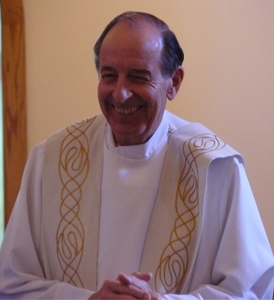 Father Alan Phillip, CP,
Father Alan Phillip, CP,
“Wakes Up the World.”
In the continuing celebration of the Year of Consecrated Life, the Los Angeles Archdiocesan newspaper, The Tidings, requested articles about religious orders. Father Alan Phillip, CP, submitted his article about the Passionists. It was published in the April 30, 2015, edition of the paper.







